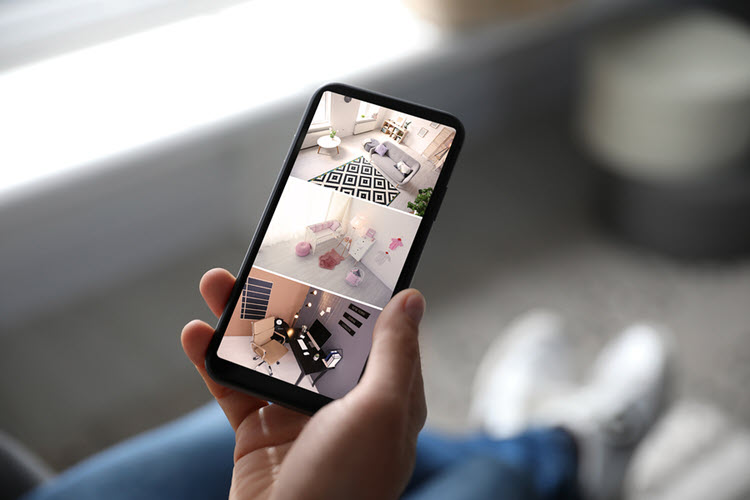Before you choose a healthcare or safety technology consider these things.
The coronavirus pandemic has forever changed the way we think about healthcare and caregiving. Before COVID-19, many families struggled with the decision to place a family member in an assisted living facility. Now that decision has taken on a deeper meaning as we see how facilities have struggled with inhouse outbreaks. In some cases, families have chosen to withdraw their loved one and bring them home. We also know how difficult lockdown has been on residents and their families.
Now what?
Well… all the care you thought might fall upon the shoulders of others may now be on yours. And you’re likely asking yourself two questions:
1. Do I have the patience and stamina to be a primary caregiver?
2. Is my home properly equipped to make sure they are safe?
Question one is something even professional caregivers might ask themselves daily, as they continue to do their absolute best. But when answering question two, there is technology available that can help you better answer question one.
You are; however, going to have to research that technology. And you will need to approach that research with the understanding that technology doesn’t solve everything by itself. You will also have to examine solutions from the perspective of your loved one, whether they are limited physically, have cognitive issues or are just products of another place and time.
“With technology the most important thing is to make sure seniors don’t get so intimidated that they don’t even want to talk about it,’ says Kat Verdi, a principal in the company Sociavi, which makes senior-friendly communication tools and software. “They’re products of a time when there was one landline and a long cord. Now we’re trying to convince them this little thing with no wires connects to anyone, anywhere.”
“What’s easy for us is not easy for them,” says Verdi. “As a teacher by trade, I make the analogy of teaching 10 students the same subject matter at the same time. Not everyone is going to get it or process it the same way.”
Verdi also points out that aging adults may not be able to absorb concepts at the speed they are being taught. Attempting to do this with someone who has degrees of memory loss or lives with some form of dementia also presents challenges.
“I don’t know how many times when I’ve worked with someone who was trying to introduce a gadget to a person with cognitive difficulties and had to bite my tongue,” Verdi says. “(Adult children) say things like, ‘she knows how to do it.’ But too often, they’re not looking at the person (who is now) struggling with disease.”
What to Consider?
Start by gauging the complexity of a product in light of your loved one’s competencies and the progress of any health conditions. What works now may not be good next year or even next week. When it comes to gadgets like computers, phones and portable screens, will your loved one be able to remember how to access content requiring user names, passwords or login screens? How will they react if they are locked out of an account or a device?
For example, devices enabled with Google’s Alexa voice recognition may help remind seniors about appointments, medication times or when to start a task. But Alexa-enabled devices may also agitate and confuse a person with cognitive issues. Alexa may not “understand” the subtle difference of speaking loudly – but not too loudly – to someone with dementia, while many caregivers understand certain tones may be perceived as annoying. Those being cared for may also need direct eye contact during conversations because sound that does not originate from a person’s mouth can create confusion.
One must also consider the simple process of answering questions that many take for granted. Educator and therapist Lanny Butler, MS, OTR, in his course “Therapeutic Approaches to Dementia,” detailed the delays those with dementia experience when processing questions. When applied to the use of Alexa or voice recognition software, those who are not cognitively compromised may hear Alexa say, “Hi. How are you?” and answer in 3-to-5 seconds. But those with cognitive issues may experience a 90-second delay. It may take 90 seconds to first process “Hi,” before moving on to “How are you?” Thus, voice recognition devices such as Alexa, that are often set for rapid dictation, may be agitating and confusing for the cognitively compromised.
Voice recognition devices may have their limits in aiding the cognitively compromised and like many other devices, they are often dependent on electricity or Internet connections to function properly. A disruption in power or data could require device re-boots, or re-log-ins, which some seniors are just not equipped to handle.
“When you really know your parents, you have to make decisions for them, often based on what stage of life they’re in and their collective experiences,” says Paula Muller, Founder of Sociavi. “When you work with a group of first grade students, they have a pattern of learning and experiences that are fairly uniform (because they’re so young). By the time somebody is 85, the spectrum of experiences and perception is so wide that it’s hard to reach people with one method or one product.”
Knowing your aging loved one’s current abilities and understanding how those abilities may change can give you a leg up on providing great care. The right device, alongside some simple physical home modifications (i.e. railings, bars to grab onto in showers and tubs, as well as fall prevention strategies) can make you a more confident caregiver.
In part one and two of this series, devices that may help create a safer environment for aging loved ones and devise that focus on health care were presented.

Disclaimer: The material in this blog is for educational purposes only. It is not intended to replace, nor does it replace, consulting with a physician, lawyer, accountant, financial planner or other qualified professional.
Deb is available as a caregiver consultant. She will answer the question: “Where do I start?” and find the resources to alleviate your stress. If you would like to invest a half hour to learn how she can help you, please contact her at: deb@advocateformomanddad.com

